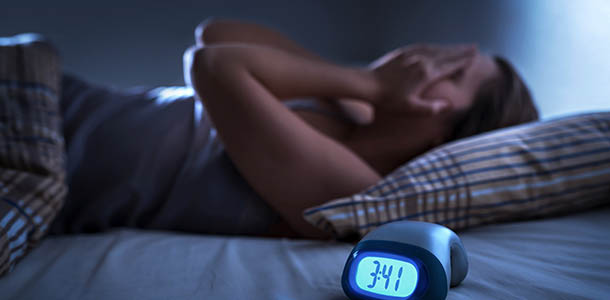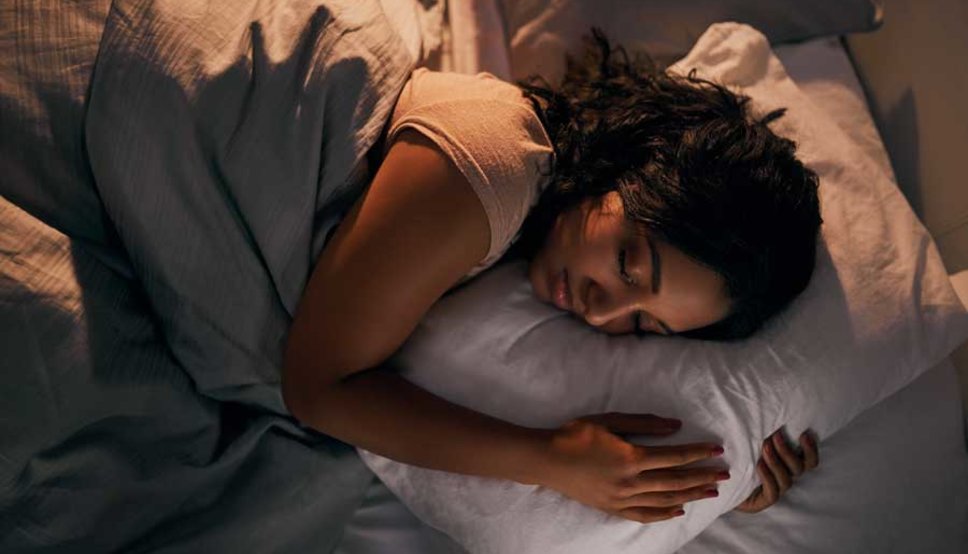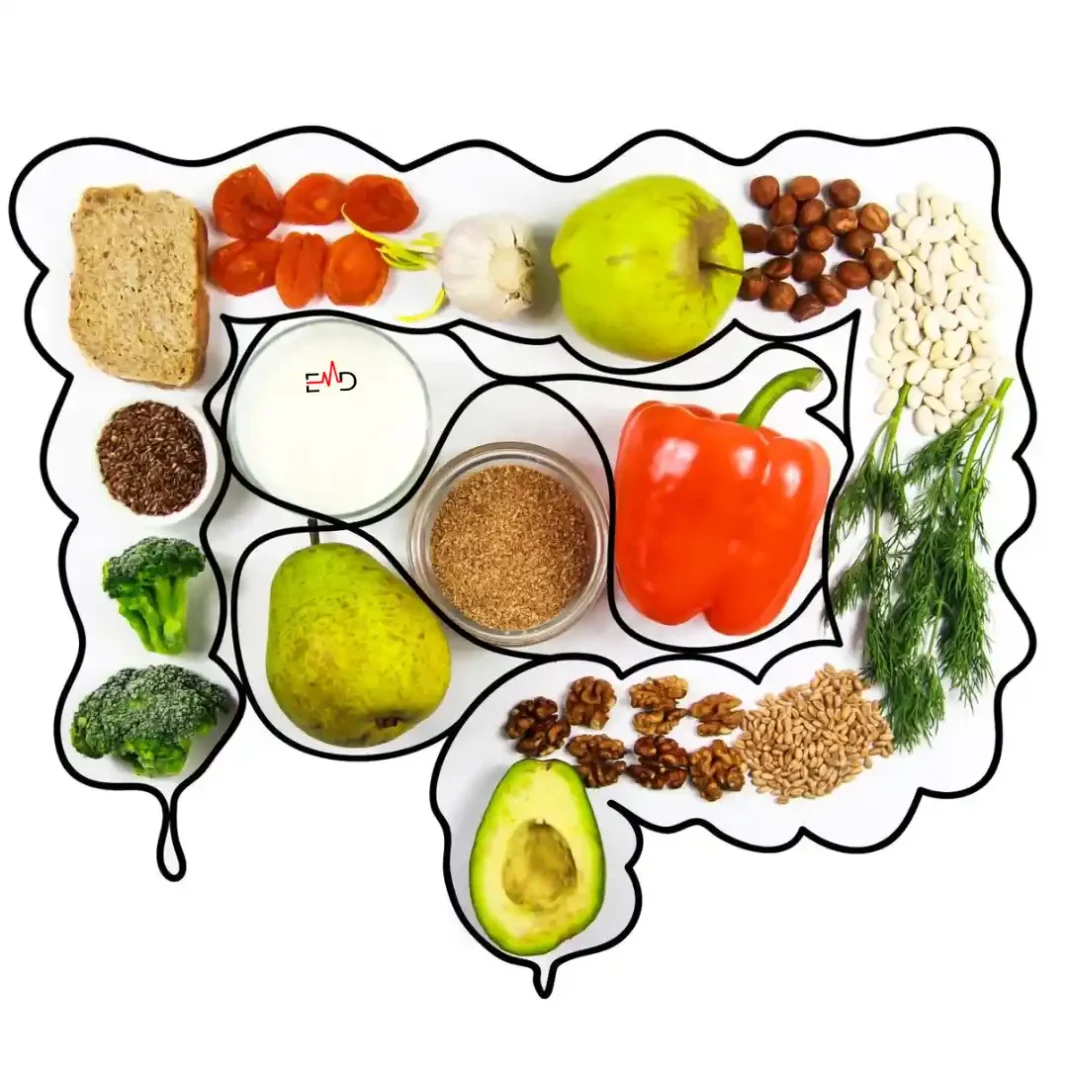Exercise Daily – If you’ve struggled to get enough sleep, you’re not alone. Sleep problems, including insomnia and sleep apnea, affect millions of people worldwide, with studies from the American Academy of Sleep Medicine and the National Sleep Foundation highlighting the impact of insufficient sleep on overall health. If you find it hard to fall asleep quickly or stay asleep throughout the night, it’s important to understand that there are several ways to improve your sleep.
Sleep hygiene practices, such as going to bed at the same time each night, avoiding caffeine, and creating a comfortable sleep environment, can help your body prepare for rest. Additionally, addressing anxiety and other factors that interfere with sleep may make it easier to fall asleep faster and stay asleep longer. Several treatment options may help improve sleep quality. Cognitive behavioral therapy for insomnia is a proven method to help you fall asleep quickly and stay asleep. At the same time, herbal remedies like valerian root in treating sleep problems may also offer relief for those struggling with chronic insomnia.
Understanding Sleep and Its Importance for Health
Sleep isn’t just a break from the day’s activities; it’s essential for maintaining physical and mental health. Quality sleep improves memory, boosts mood, and strengthens the immune system. On the other hand, poor sleep habits can lead to chronic conditions, fatigue, and reduced productivity. Over-the-counter sleep aids and supplements that promote the sleep hormone melatonin can help fight insomnia, but they should be used cautiously. For a better night’s sleep, it’s essential to establish good sleep hygiene, such as reserving your bed only for sleep and adjusting to your lifestyle.
Whether incorporating relaxation techniques or adjusting your evening routine, these changes may help you achieve the eight hours of sleep each night that your body needs to function at its best. Prioritizing good sleep is one of the best things you can do for your overall well-being.

The Stages of Sleep
Understanding the different stages of sleep can help you appreciate its complexity and importance. Sleep is divided into two main types: Non-Rapid Eye Movement (NREM) and Rapid Eye Movement (REM) sleep.
- NREM Stage 1: This is the lightest stage of sleep, where you transition from wakefulness to sleep. It lasts only a few minutes.
- NREM Stage 2: This stage represents deeper relaxation, with your heart rate slowing and body temperature dropping.
- NREM Stage 3: Also known as deep sleep or slow-wave sleep, this stage is crucial for physical restoration and immune function.
- REM Sleep: This stage is characterized by vivid dreaming and is essential for cognitive functions like memory consolidation and learning.
Each stage plays a vital role in ensuring that your body and mind are well-rested and ready to tackle the day ahead.
Common Causes of Sleep Problems
Understanding what disrupts sleep can help address these issues more effectively. Common culprits include stress, an uncomfortable environment, and irregular schedules. Knowing the root of your sleep troubles is the first step toward addressing them.
Stress and Anxiety
High-stress levels and anxiety are the primary causes of insomnia. When your mind races, it becomes harder to fall asleep, stay asleep, and wake up refreshed. Chronic stress can lead to elevated cortisol levels, which interfere with your ability to relax and enter a restful state.
Poor Sleep Environment
The environment plays a big role in sleep quality. If your room is too bright, noisy, or uncomfortable, it can prevent restful sleep. Factors such as room temperature, lighting, noise levels, and bedding quality contribute to your sleep environment.
Irregular Sleep Habits
Going to bed at different times each night or spending too much time in bed can throw off your internal clock. An irregular sleep schedule disrupts your circadian rhythm, making it difficult for your body to establish a consistent sleep-wake cycle.
Natural Sleep Aids for Better Sleep
Many people turn to natural remedies when sleep issues arise. Here are some well-known natural aids to help you sleep without synthetic chemicals.
Melatonin Supplements
Melatonin is a hormone that regulates sleep-wake cycles. Taking as a supplement can help people fall asleep faster and improve sleep quality, especially for those with irregular schedules.
Benefits of Melatonin for Sleep
Melatonin helps adjust the body’s internal clock, making it beneficial for people with jet lag or irregular work hours. It’s especially useful for older adults, whose melatonin levels may naturally decline with age. Additionally, melatonin has been shown to:
- Improve Sleep Onset: Reduce the time it takes to fall asleep.
- Enhance Sleep Quality: Increase overall sleep duration and reduce nighttime awakenings.
- Regulate Circadian Rhythms: Assist those with shift work or irregular schedules in maintaining a consistent sleep pattern.
Dosage and Usage
Typically, 1–5 mg of melatonin is sufficient for most people. It’s best to take melatonin 30 minutes to an hour before bed. However, it’s important to:
- Consult a Healthcare Provider: Determine the appropriate dosage and ensure it won’t interact with other medications.
- Start with a Lower Dose: Begin with the smallest effective dose to minimize potential side effects.
- Monitor Effects: Pay attention to how your body responds and adjust the dosage as needed under professional guidance.

Valerian Root and Its Role in Sleep Health
Valerian root is an herbal remedy with a long history of promoting relaxation and sleep. It’s popular for its calming effects, which may help people fall asleep faster and experience fewer nighttime awakenings.
Benefits of Valerian Root
Valerian root contains compounds that may reduce anxiety and improve sleep quality. Its benefits include:
- Anxiolytic Properties: Helps reduce feelings of anxiety, making it easier to relax before bed.
- Sleep Enhancement: May increase the amount of deep sleep and reduce the time it takes to fall asleep.
- Non-Habit Forming: Unlike some sleep medications, valerian root is not typically associated with dependency.
How to Use Valerian Root
Valerian root is available in various forms, including tea, capsules, or tinctures. To use valerian root effectively:
- Start with a Small Dose: Begin with a lower dose to assess your body’s response.
- Timing: Take valerian root about 30 minutes before bedtime.
- Consistency: Use it consistently for a few weeks to experience its full benefits.
- Consult a Healthcare Provider: Especially if you take other medications or have underlying health conditions.
Additional Natural Sleep Aids
Beyond melatonin and valerian root, several other natural sleep aids can enhance your sleep quality:
Magnesium
Magnesium is a mineral that supports deep, restorative sleep by maintaining healthy levels of GABA, a neurotransmitter that promotes relaxation.
- Sources: Leafy green vegetables, nuts, seeds, and whole grains.
- Supplements: Magnesium supplements can be taken in the evening to aid sleep.
Lavender
Lavender is known for its soothing aroma, which can help promote relaxation and improve sleep quality.
- Aromatherapy: Use lavender essential oil in a diffuser or as a pillow spray.
- Topical Application: Apply diluted lavender oil to your skin before bed.
Chamomile
Chamomile tea is a popular bedtime beverage that can help calm the mind and prepare the body for sleep.
- Tea: Enjoy a warm cup of chamomile tea 30 minutes before bedtime.
- Supplements: Chamomile supplements are available for those who prefer not to drink tea.

Lifestyle Changes That Help Improve Sleep Quality
Beyond natural supplements, simple lifestyle changes can work wonders for sleep health. Let’s look at practical steps to promote restful nights.
Practicing Healthy Sleep Habits
Adopting healthy sleep habits is crucial. Consistency, relaxation, and a sleep-friendly environment all contribute to better sleep.
Establishing a Consistent Routine
Going to bed and waking up simultaneously daily helps regulate your body’s internal clock. Aim for 7-9 hours each night to maintain balanced sleep cycles.
- Set a Fixed Schedule: Even on weekends, try to stick to your regular sleep and wake times.
- Gradual Adjustments: If you need to change your sleep schedule, gradually adjust your bedtime and wake time by 15 minutes each day.
- Morning Sunlight: Exposure to natural light in the morning can help reinforce your sleep-wake cycle.
Creating a Sleep-Friendly Environment
Ensure your bedroom is cool, dark, and quiet. Investing in a comfortable mattress and blackout curtains can make a difference. Also, avoid using your bed for activities other than sleep to train your mind to associate it with rest.
- Optimal Bedding: Choose pillows and mattresses that support your preferred sleeping position and reduce discomfort.
- Minimize Distractions: Remove electronic devices from your bedroom to create a distraction-free environment.
- Personal Comfort: Decorate your bedroom in calming colors and add elements that make you feel relaxed.
Limiting Screen Time Before Bed
Exposure to screens before bed can interfere with melatonin production, making it harder to fall asleep. Aim to shut off screens at least an hour before bedtime. Reading a book or practicing meditation can help ease the transition to sleep.
- Blue Light Filters: Use apps or device settings that reduce blue light emission in the evening.
- Alternative Activities: Engage in relaxing activities such as reading, journaling, or gentle stretching instead of using electronic devices.
- Dedicated Charging Station: Keep your phone and other devices out of the bedroom to reduce the temptation to use them before sleep.
Diet and Nutrition
What you eat and drink throughout the day can significantly impact your sleep quality. Certain foods and beverages can either promote or hinder your ability to fall asleep and stay asleep.
- Avoid Caffeine and Nicotine: Both are stimulants that can keep you awake. Limit their intake, especially in the afternoon and evening.
- Limit Alcohol: While alcohol might help you fall asleep initially, it can disrupt your sleep cycle and reduce sleep quality.
- Balanced Diet: A diet rich in fruits, vegetables, lean proteins, and whole grains can support overall health and improve sleep.
Foods that Promote Sleep
- Tryptophan-Rich Foods: Turkey, chicken, and dairy products contain tryptophan, an amino acid that helps produce serotonin and melatonin.
- Complex Carbohydrates: Whole grains, sweet potatoes, and legumes can help increase the availability of tryptophan in the brain.
- Magnesium-rich foods: Spinach, almonds, and bananas can support muscle relaxation and sleep.

Final Thoughts on Achieving Better Sleep
Good sleep doesn’t happen overnight; it requires consistent effort and changes. Natural remedies, healthy habits, and mindful lifestyle choices can collectively help you improve sleep quality and wake up feeling refreshed. Embrace these methods, and give your body the rest it deserves.
Building a Personalized Sleep Plan
Creating a personalized sleep plan can help you implement and maintain healthy sleep practices:
- Assess Your Current Sleep Habits: Identify patterns and behaviors that may be affecting your sleep.
- Set Realistic Goals: Aim for achievable changes, such as going to bed 15 minutes earlier each night.
- Track Your Progress: Keep a sleep diary to monitor improvements and identify areas needing adjustment.
- Adjust as Needed: Be flexible and willing to modify your plan based on what works best for you.
If sleep problems persist despite making lifestyle changes and using natural remedies, consider seeking professional help. A healthcare provider or sleep specialist can offer tailored treatments and identify any underlying medical conditions that may be contributing to your sleep issues.
FAQs – Ward Off Sleep Problems with These Sleep-Inducing Remedies
Q: Are natural sleep aids safe for everyone?
A: Natural sleep aids like melatonin and valerian root are generally safe but should be used under a healthcare provider’s guidance, especially if you have existing health conditions. Before starting any new supplement, it’s important to consider potential interactions with other medications and individual health factors.
Q: How much sleep should an adult get each night?
A: Most adults need 7-9 hours of sleep per night to function optimally. However, individual needs may vary slightly. Factors such as age, lifestyle, and overall health can influence the exact amount of sleep required.
Q: Can stress really affect sleep that much?
A: Yes, stress is one of the leading causes of sleep disturbances. High-stress levels activate the body’s “fight or flight” response, making it hard to relax enough to fall asleep. Chronic stress can lead to persistent insomnia and other sleep-related issues.
Q: What’s the best sleep environment?
A: A cool, dark, and quiet room is ideal. Many find that investing in blackout curtains, earplugs, or white noise machines helps improve sleep quality. Additionally, maintaining a comfortable temperature and using supportive bedding can create an optimal sleep environment.
Q: How long do melatonin supplements take to work?
A: Melatonin generally takes around 30 minutes to an hour to help you feel sleepy, but it may vary from person to person. Factors such as the timing of the dose, individual metabolism, and the specific formulation of the supplement can influence how quickly melatonin takes effect.




